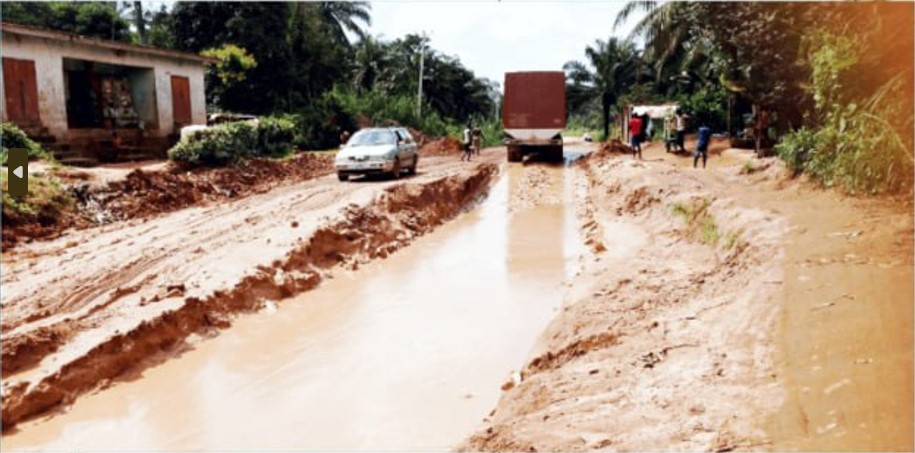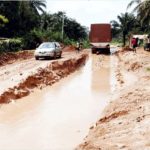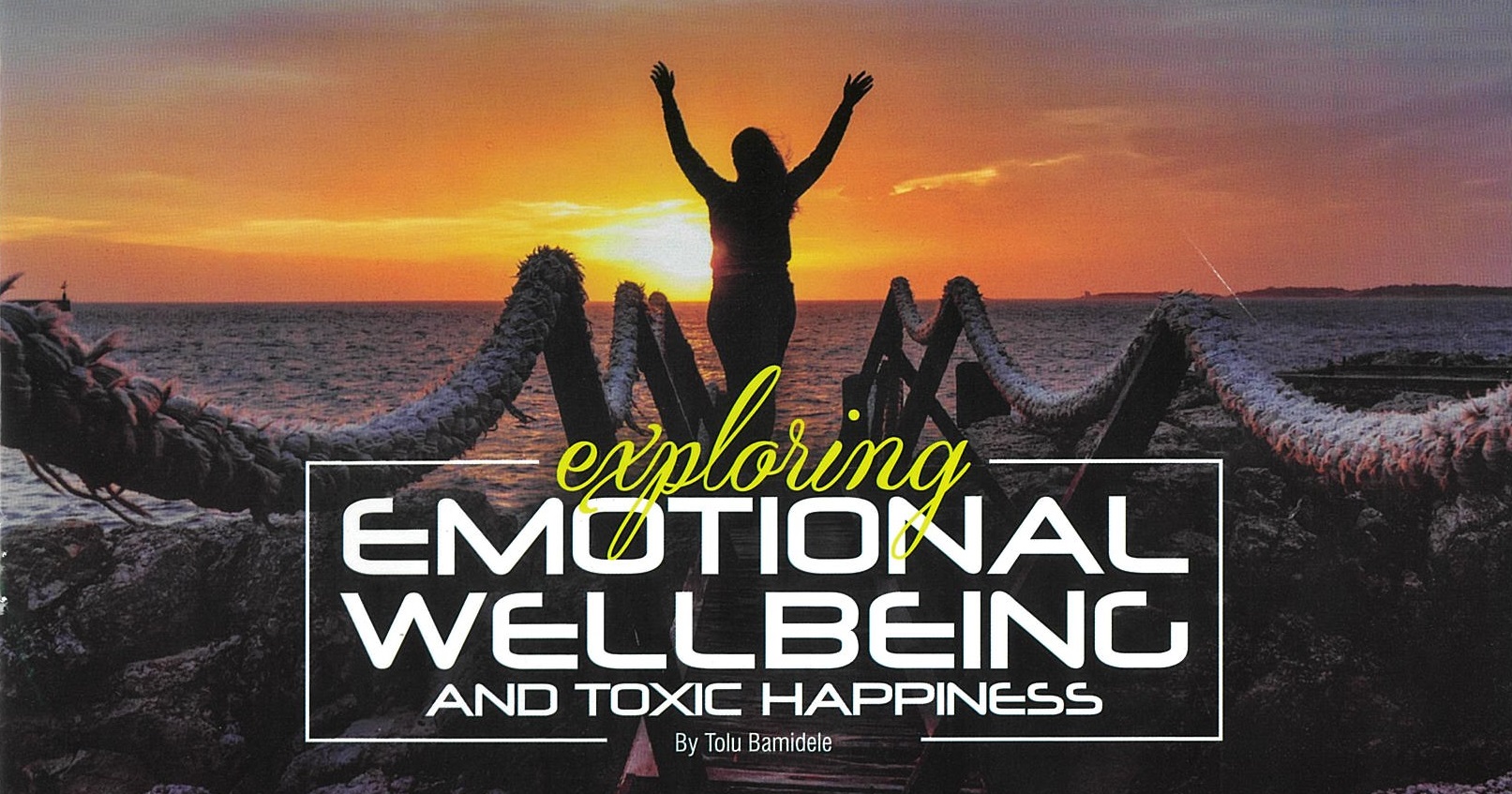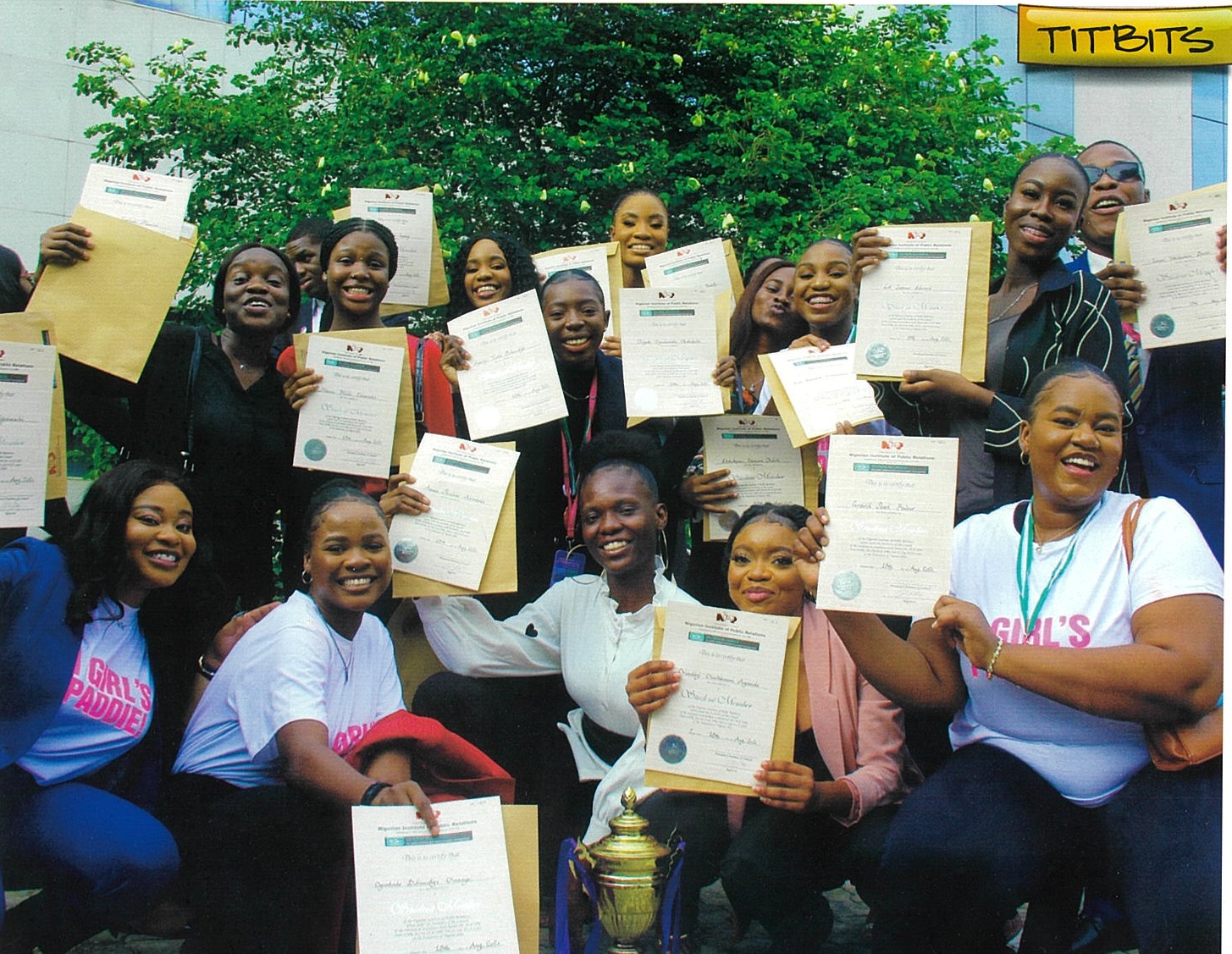Ota, the industrial town bordering Lagos to the west, is the capital of the Ado Odo-Ota Local Government Area – one of the subdivisions in Ogun State of Nigeria. The town is one of the most industrialized in Nigeria. It houses the largest church service building – Faith Tabernacle built by Winners Chapel of the Living Faith Church Worldwide. What is more, Ota has the largest concentration of higher institutions in Ogun State with at least three universities. Ota is the traditional capital of the Awori, a Yoruba ethnic group. One thing, however, has paled the town into insignificance – bad roads.
The poor condition of roads in this ancient is such that residents and commuters are frustrated as they trek or drive on those roads to their houses and workplaces. For example, people work at such places as Covenant University, The Bells University, Crawford University, Winners Chapel’s Canaan land, African Leadership Forum, African Distilleries, Nestle, President Paints, Nigeria Navy School of Music, Veepee Industry, De United Foods (makers of Indomie), Honda Manufacturing Limited just to mention a few.
It is not unusual to see people fagged out and splashed with dirty flood water when resuming in the morning as going back home at the close of work becomes a nightmare. The condition of the roads is so bad that the famous singer Idris Abdulkareem sang a song that went viral about how the Governor of Ogun State, Dapo Abiodun, is collecting so much revenue from tax but using the proceeds to develop other areas in the state. Many Ota residents believe that this narrative is part of the alleged discrimination against the Awori people. Idowu Olofinde said: “We shouldn’t be surprised. This is part of the gang-up to frustrate Ota and its environs.”
What is more concerning about the poor roads in Ota is that the local government officials lack the initiative to proffer solutions to the problems. One Awori man said: the LG civil servants are the most unreliable and irresponsible set of people I have ever met in my life. Do you know that these people have lived with bad roads for decades and none has ever thought of coming up with solutions to the problem; none! All they rely on is the allocation from the federal government which they claim to spend on clearing drainages and other irrelevant things that are meaningless to commuters. Even their offices are flooded!”
This article is not about complaints. It is to enlighten local government officials and residents on how resources can be mobilized and channeled towards the construction of those roads in the custody of local government. There are three categories of roads in Ota namely Federal, State, and Local Government. Federal government roads include Sokoto Road, the Ota-Idi Iroko road which is dualized from the Sango Under Bridge up to Canaanland – where the gigantic worship place- Faith Tabernacle is situated, and the Atan-Agbara Road that links with Badagry Expressway. State roads include Itele Road, Old Ota Road, Iyana Iyesi Road, Lamaco Road, and Olawole Street. Every other road is in the domain of the local government.
Before prescribing what can be done to significantly improve the conditions of the local government roads, it is important to warn that if the local government officials do not change their orientation about grassroots development, which means thinking out of the box, nothing will change concerning the roads. These officials should note that government is not the only source of funds for grassroots development. They should know that there are several other ways resources can be mobilized to construct roads. One of these is PPP – Private Public Participation. PPP is proof that the government is incapable of constructing goods roads alone and that private sector participation is critical to the development.
Several local government roads can be constructed on the PPP model. This paper zeroed in on two of them. One is the Bells University Road which starts from The Bells Junction bus stop down to the Ilogbo Swamp and from there to the Ilogbo town. Builders and real estate developers say that a bridge should be constructed on the swamp to be tolled. There are already alternative roads that lead to Ilogbo which makes it easier for those who do not want to use the tolled bridge to get to their destination.
Two, is the Tipper Garage-Ilogbo-Ijako Owode road. The 20-kilometer road is fully matured for the PPP. Besides the more than two alternative routes that are available for motorists who prefer them, the residents of the area said they are more than willing to pay anything between N100 and N1000 toll fees depending on the type of vehicle. According to Segun Agseg, an automobile technician, “we are already to pay the toll. The toll is nothing compared to the amount that people spend on car repairs. We are ready to give the constructors all the support they need to succeed.” But the question remains, are the local government officials ready to change their current unproductive thinking pattern?












